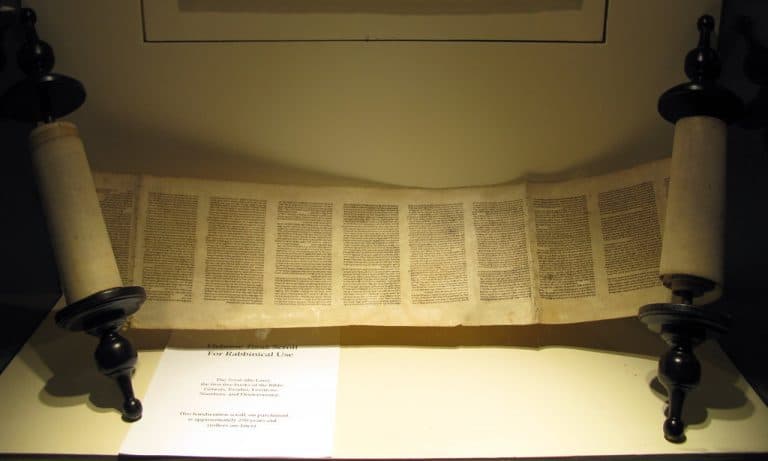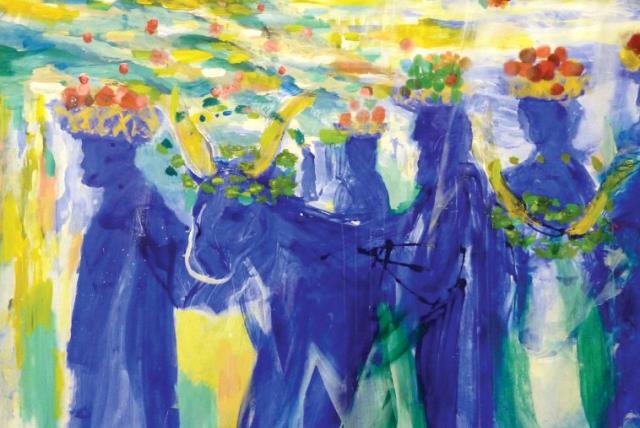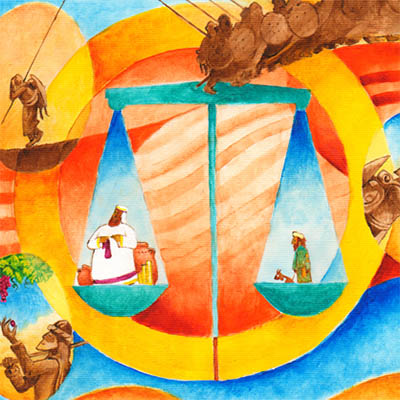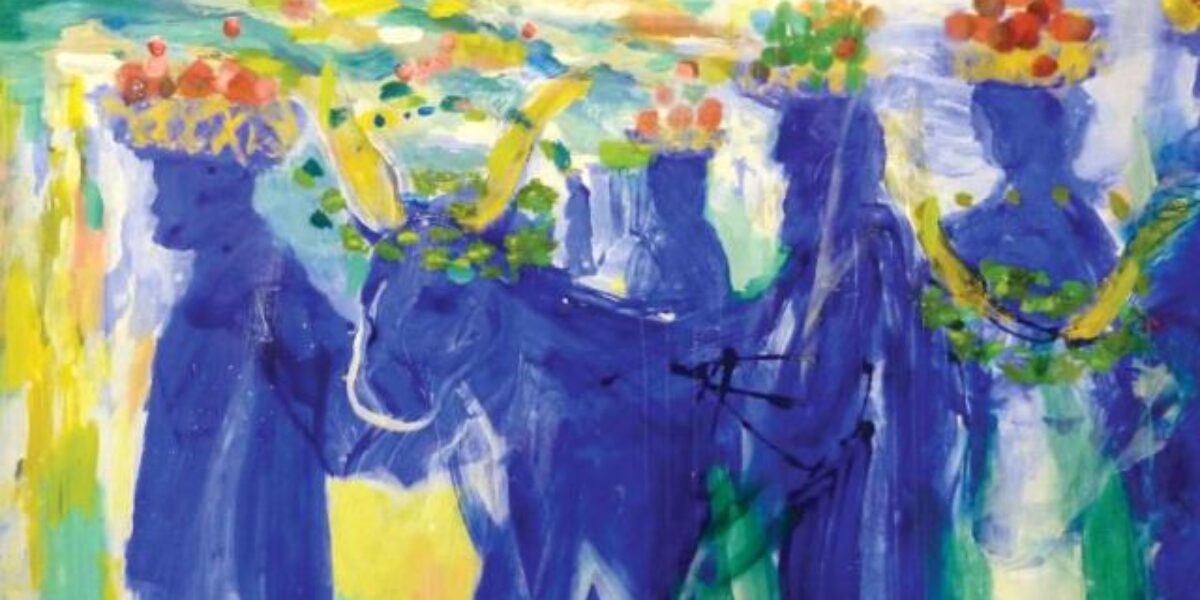Ki Tavo – Deut. 26:1-29:8 (Aug. 26/7)

As the Torah Turns
Rabbi Lader’s Weekly D’var Torah
Ki Tavo – Deut. 26:1-29:8 (Aug. 26/7)
[This d’var Torah is from Rabbi Jethro Berkman, a program officer in Jewish education for the Jack, Joseph and Morton Mandel Foundation, in Newton MA]Cultivating a Culture of GivingA D’var Torah for Ki Tavo – Deut. 26:1-29:8. One of my most vivid memories of attending Hebrew school as a child is the passing of the tzedakah box at the beginning of class. When I arrived at the synagogue and took my seat in class, the teacher would pass a wooden tzedakah box around. On the days I had remembered to grab some coins from my parents, I would proudly slide them through the slot and hear the satisfying clink of the coins in the box. On the days I forgot, I would murmur an excuse and pass the box on to a classmate, feeling a bit embarrassed. Although the money wasn’t my own, and I didn’t know exactly where the tzedakah was donated, this ritual conveyed powerful messages that have stayed with me: giving to those in need is important and is deeply intertwined with being Jewish; I am part of a community that gives; giving is a holy obligation; giving is something that happens regularly; Jewish spaces are spaces where giving happens. This week’s Torah portion, Ki Tavo, conveys some of these same messages. It is part of a web of laws and stories that have shaped the Jewish imperative to give to those in need and that surely lies behind the tzedakah box ritual in my Hebrew school classroom. Ki Tavo begins by linking material abundance with Jewish peoplehood and gratitude to God. When the harvest ripens each year, each Israelite is commanded to bring an offering of his “first fruits” to the Temple and then to recite a declaration of thanksgiving to God, offering gratitude for being redeemed from slavery and brought to the land of milk and honey. The declaration is followed by a commandment for Israelites to set aside a tenth of their yield every third year and to distribute it to “to the Levite, the stranger, the fatherless, and the widow, that they may eat their fill in your settlements.” (Deuteronomy 26:12) By linking giving to the stranger, fatherless, and widow with the bringing of the first fruits to the Temple, the Torah frames giving to the needy as a sacred act. By requiring giving in triennial cycles, the Torah [makes real the abstract of giving tzedakah] as a regular obligation, not an act of benevolence dependent on the stirring of one’s heart. And by linking the giving to the needy with the altar “where the ETERNAL your God will choose to establish [God’s] name” (Deuteronomy 26:2), the Torah locates giving in sacred space. One can see in these verses the framework for giving that was echoed millennia later in my Hebrew school classroom. With its image of a basket of first fruits and its command to tithe the yield of the harvest for the poor, this portion also evokes the specter of hunger, as real today as it was in biblical times. We are living through a time of significantly increased food insecurity for millions of Americans, due primarily to the COVID-19 epidemic. Experts estimate that more than 50 million Americans have experienced food insecurity during the pandemic, an increase of 15 million people since 2019. A friend who works for a local food bank told me he has never experienced demand for food support like he has in the past year. And with the disruptive effects of climate change on crop yields and the prospect of increased inflation on the horizon, food insecurity may continue to grow. Ki Tavo’s verses linking regular giving, God, and sacred space to crops and food have a powerful resonance during this time of food insecurity. It is concerning, then, that in this time of food insecurity both religiosity and individual charitable giving in America are in decline. While in 2000, some 66% of American households donated to charity, in 2018 (the last year for which we have comprehensive data) the number had dropped below 50% for the first time in decades. While it is difficult to prove a causal connection between these figures and America’s well-documented decline in religiosity, the correlation is notable. It seems quite possible that the decreased participation in religious community and spaces in our increasingly secular age has led to a decrease in charitable giving, and one worries about the effects on both local soup kitchens and food banks and national hunger-fighting charities in this time of need. For the sake of the food insecure in these difficult days, and for the future health of our country, I hope that Ki Tavo’s powerful linking of sacred space and religiosity to the obligation to give to those in need can be strengthened. As Americans increasingly seek spirituality and community outside of organized religion, community builders, religious and non-religious alike, must work to cultivate cultures of giving. Looking back on my childhood, I can’t think of another space or club or activity that celebrated and normalized giving to those in need the way my Hebrew school did. The sacred space of the synagogue was where I (and hundreds of my Hebrew school classmates) learned that it is right and normal and holy and expected to give tzedakah, where we absorbed our sense of obligation to give to those in need. May the places we gather, the communities we build and the spiritual messages we share continue to inspire giving to those in need.

From Previous Weeks

Re’eh – Deut. 11:26-16:17 (Aug. 6/7)
The Jewish ideals of giving to those in need – tzedakah – were summarized and taught by Rabbi Moses Maimonides.

Shoftim – Deut. 16:18-21:9 (Aug. 13/14)
Instruction for the Jewish value of bal tashchit – do not destroy — do not waste…

Ekev – Deut. 7:12-11:25 (Jul. 29/30)
Crowds are moved by great speakers, but lives are changed by great listeners…”

Va’etchanan – Deut. 3:23-7:11 (Jul. 23/24)
Attaching ourselves to God does not blur our individual identity, it sharpens it.

